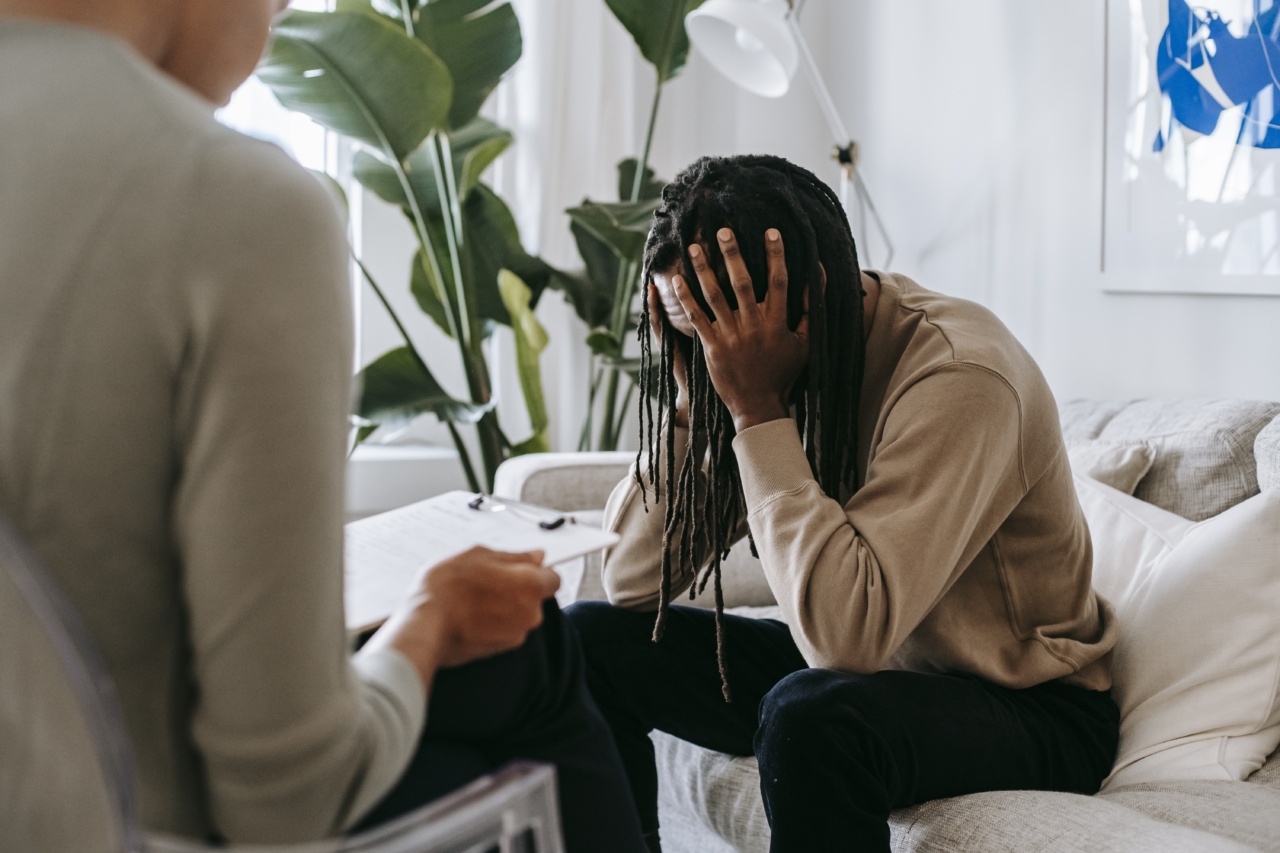Sexual anxiety is a common issue that many men experience at some point in their lives. It can manifest in various ways, including performance anxiety, fear of intimacy, and a lack of sexual confidence.
Understanding the causes of male sexual anxiety is crucial for finding effective solutions to overcome it. In this article, we will explore the possible causes of male sexual anxiety and provide practical strategies for addressing and resolving this issue.
Causes of Male Sexual Anxiety
1. Past Traumatic Experiences:.
Men who have experienced past sexual trauma or abuse may develop sexual anxiety as a result. These traumatic experiences can negatively impact their self-esteem, body image, and overall sexual confidence.
It is important for individuals who have experienced such trauma to seek therapy or counseling to address and heal from these wounds.
2. Performance Pressure:.
Many men feel pressured to perform sexually and meet certain expectations in the bedroom. This pressure can stem from societal norms, media portrayals of sex, or personal beliefs about masculinity.
Fear of not satisfying their partner or living up to perceived standards can result in sexual anxiety.
3. Relationship Issues:.
Difficulties within a romantic relationship, such as unresolved conflicts, lack of emotional connection, or communication problems, can contribute to sexual anxiety.
Feelings of insecurity, fear of rejection, or a sense of disconnection from the partner can all hinder sexual confidence and intimacy.
4. Body Image Concerns:.
Body image issues are not exclusive to women. Men can also experience anxiety related to their physical appearance, particularly in the context of sexual encounters.
Feeling self-conscious about body shape, size, or perceived flaws can significantly impact sexual confidence and contribute to anxiety.
5. Erectile Dysfunction or Premature Ejaculation:.
Experiencing difficulties in achieving or maintaining an erection, or struggling with premature ejaculation, can lead to sexual anxiety.
Men may fear the embarrassment or disappointment associated with these issues and become preoccupied with performance, leading to further anxiety.
6. Lack of Sexual Education:.
Insufficient or inaccurate sexual education can leave men feeling uncertain or uninformed about their own bodies, sexual desires, and how to navigate intimate relationships.
This lack of knowledge can result in anxiety about sexual performance and satisfaction.
7. Stress and Mental Health Conditions:.
High levels of stress, anxiety disorders, depression, or other mental health conditions can have a significant impact on sexual confidence and functioning.
Psychological factors play a crucial role in sexual experiences, and addressing underlying mental health issues can help alleviate sexual anxiety.
Solutions for Male Sexual Anxiety
1. Open Communication:.
Talking openly and honestly with your partner about sexual anxieties and concerns can help alleviate some of the pressure and create an atmosphere of support.
Sharing your fears and seeking understanding from your partner can strengthen the emotional connection and lead to a more satisfying sexual relationship.
2. Seeking Professional Help:.
If sexual anxiety persists or is significantly affecting your quality of life, seeking professional help from a therapist or counselor who specializes in sexual health can be incredibly beneficial.
They can provide guidance, coping strategies, and tools to address the underlying causes of anxiety.
3. Learning and Self-Education:.
Take the time to educate yourself about sexual health, anatomy, and sexual techniques. Understanding your own body and sexual desires can increase confidence and reduce anxiety.
There are various books, online resources, and workshops available that can provide reliable information and helpful tips.
4. Relaxation Techniques:.
Engaging in relaxation techniques, such as deep breathing exercises, meditation, or yoga, can help reduce stress and anxiety levels. Finding ways to relax both mentally and physically can positively impact sexual experiences and confidence.
5. Sensate Focus Exercises:.
Engaging in sensate focus exercises, which involve non-sexual touch and exploration of your partner’s body, can help build intimacy and reduce performance anxiety.
These exercises focus on fostering pleasure and connection rather than achievement or performance.
6. Couple Therapy:.
If sexual anxiety is negatively impacting your relationship, considering couple therapy can provide a safe space for both partners to address and resolve their concerns.
A therapist can help facilitate communication, deepen emotional intimacy, and explore ways to enhance sexual pleasure.
7. Lifestyle Changes:.
Adopting a healthier lifestyle can positively impact sexual health and reduce anxiety. Regular exercise, a balanced diet, adequate sleep, and managing stress levels can all contribute to improved sexual function and well-being.
8. Medication and Medical Interventions:.
In some cases, medication or medical interventions may be necessary to address specific sexual issues, such as erectile dysfunction or premature ejaculation.
Consultation with a healthcare professional can help determine the most appropriate treatment option.
9. Masturbation and Self-Exploration:.
Engaging in solo sexual exploration and masturbation can help build sexual confidence and reduce anxiety. It allows individuals to learn about their own bodies, desires, and preferences, creating a more fulfilling and relaxed sexual experience.
10. Patience and Self-Compassion:.
Overcoming sexual anxiety is a process that requires patience and self-compassion. It is essential to be kind to yourself and remember that every individual’s sexual journey is unique.
Celebrate progress, however small, and allow yourself the time and space to grow and explore sexually.































